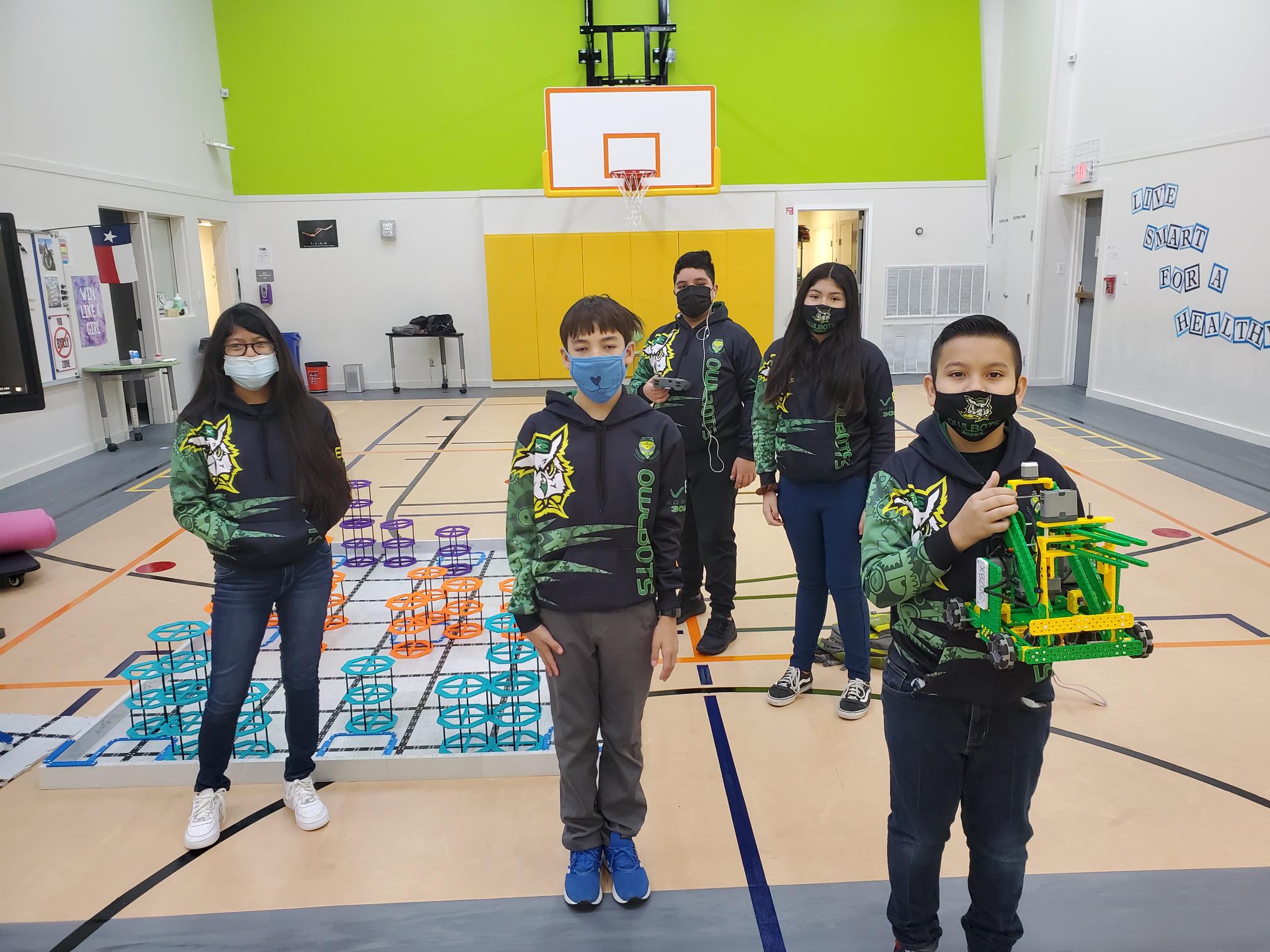How Teaching Robotics Fosters Tech and Soft Skills
Students who compete in robotics competitions learn STEM skills, but equally important are the social skills they gather

Tools and ideas to transform education. Sign up below.
You are now subscribed
Your newsletter sign-up was successful
Fausto Flores has spent too many hours to count coding with his robotics coach Omar Cortez.
But the sixth grader at the School for the Talented and Gifted in Pleasant Grove, Texas, isn’t complaining.
“When I get the code right what I feel is pure enjoyment and happiness,” Fausto says.
Beginning on May 17, Fausto and his teammate’s on the Owlbots 3028x will compete at the first-ever Live Remote VEX Robotics World Championship. The event runs through May 29 and is hosted by The Robotics Education & Competition (REC) Foundation and VEX Robotics.
Because of ongoing COVID-19 travel and crowd-size restrictions, the robotics competition will be held remotely. Instead of head-to-head battles in the same physical locations, the teams will have their robots perform various agility and speed tasks against one another in real-time over the internet.
The annual VEX Robotics World Championship is the world’s largest robot competition, and typically attracts more than 30,000 attendees from all 50 states and more than 70 nations.
Participating in a robotics team and in this type of event is about more than the thrill of competing, say enthusiasts.
Tools and ideas to transform education. Sign up below.

Tech and Soft Skills
Students who participate in robotics learn more than just technical skills, says Dan Mantz, CEO and Chairman of the Board for the Robotics Education & Competition Foundation (REC). “You learn mechanical build. You learn how to put things together. You learn electronics, and of course, you learn programming, which are all vital skills for STEM careers,” he says. “But if you talk to any organization that runs STEM type competitions, we’ll all agree it’s the soft skills that are by far the most important thing. You learn communication skills. You learn collaboration. You learn problem-solving, and those are really, really important, whether you pursue a college degree or you go into a STEM field or you go to a non-STEM field.”
When Mantz became CEO of REC four years ago, the focus was “STEM, STEM, STEM,” but he’s been working to broaden that. “We realized that there's a bigger issue out there and that's the workforce. In the U.S. and across the world, we need a workforce that can adapt to the emerging technologies. So what programs like ours do is they give the students the foundation of the tech skills. They understand computers, programming, the Internet of Things, and connectivity, so they understand all the tech skills, but they also have this intuition now on how to problem solve, and how to collaborate in the future tech world.”
Cortez has seen similar soft skill development with his students. “It's been so beneficial in their speech, their public speaking,” he says. “When they first came to me, they were very shy, and now they're extremely outgoing. And so I think that's probably been the most exciting part is watching these kids grow and develop into the people who they are right now.”
Wendy Fernandez, a sixth grader on the team, says participating in robotics this way has helped her collaborate with other students. “I enjoy working with my teammates to solve problems that we have,” she says.
How To Get Started
Esteban Monreal, also a sixth grader on the Owlbots, says that educators or students interested in starting a robotics team should visit the VEX IQ website and explore the resources there.
“That really helps you understand a lot of different key aspects about your robot, and just robots in general, like torque, speed, mechanical advantages, energy transfer, subsystems -- really everything you need to know about a robot,” he says.
You can get started with a high school starter kit for $600 or an elementary school kit for $400, Mantz says, and the online resources are substantial enough that you don’t have to be a robotics expert to launch a team. “Our program does not require engineering mentors or programming mentors; it requires an adult, and typically a teacher or sometimes a parent who works as a facilitator,” he says.
Erik Ofgang is a Tech & Learning contributor. A journalist, author and educator, his work has appeared in The New York Times, the Washington Post, the Smithsonian, The Atlantic, and Associated Press. He currently teaches at Western Connecticut State University’s MFA program. While a staff writer at Connecticut Magazine he won a Society of Professional Journalism Award for his education reporting. He is interested in how humans learn and how technology can make that more effective.

